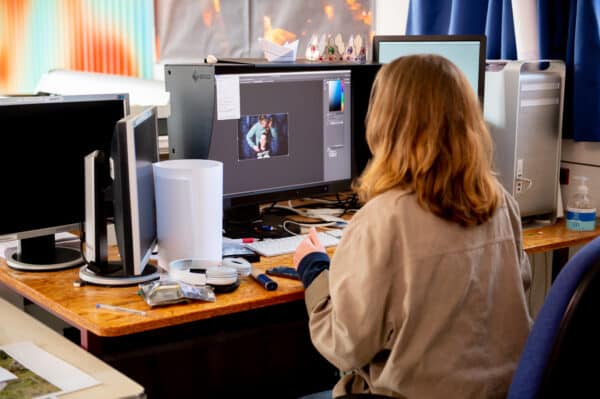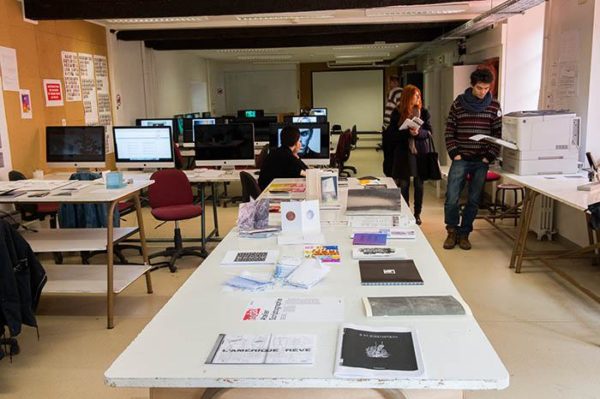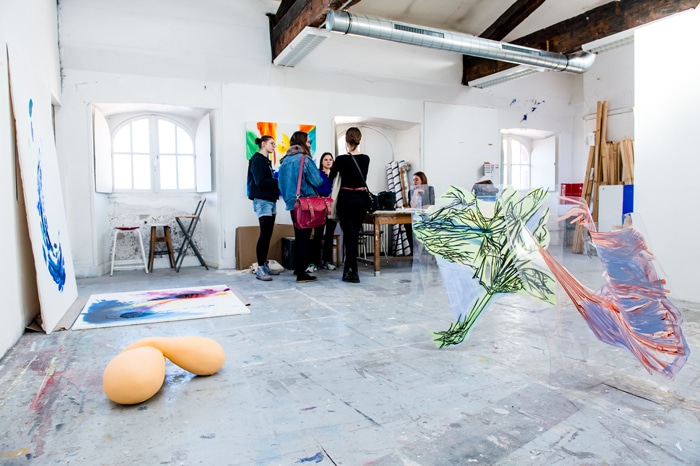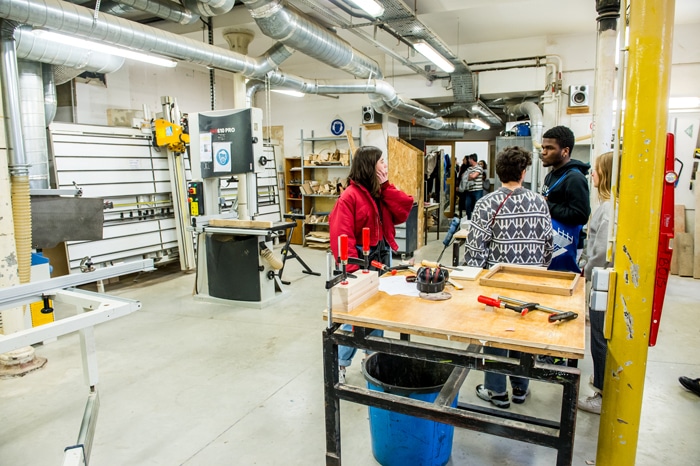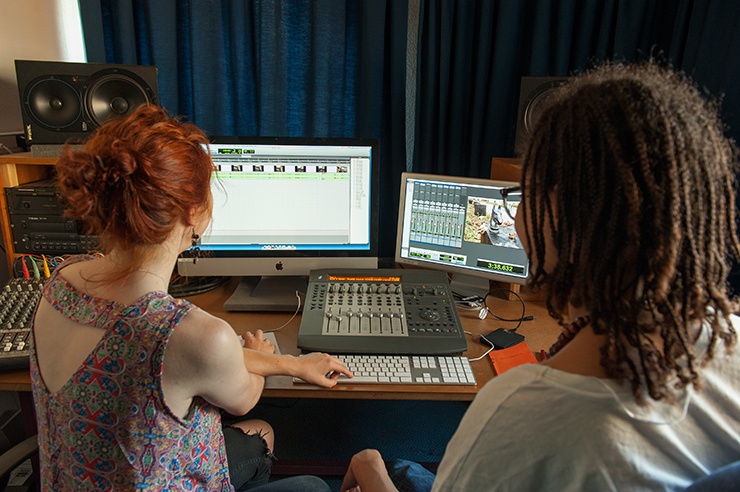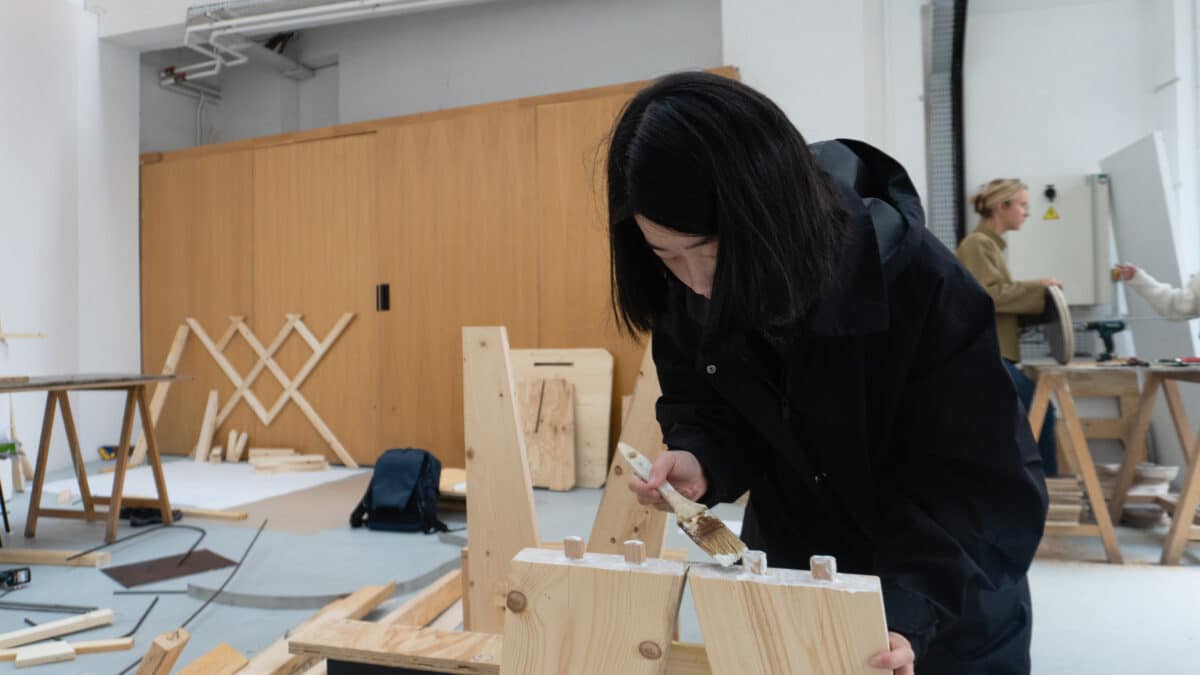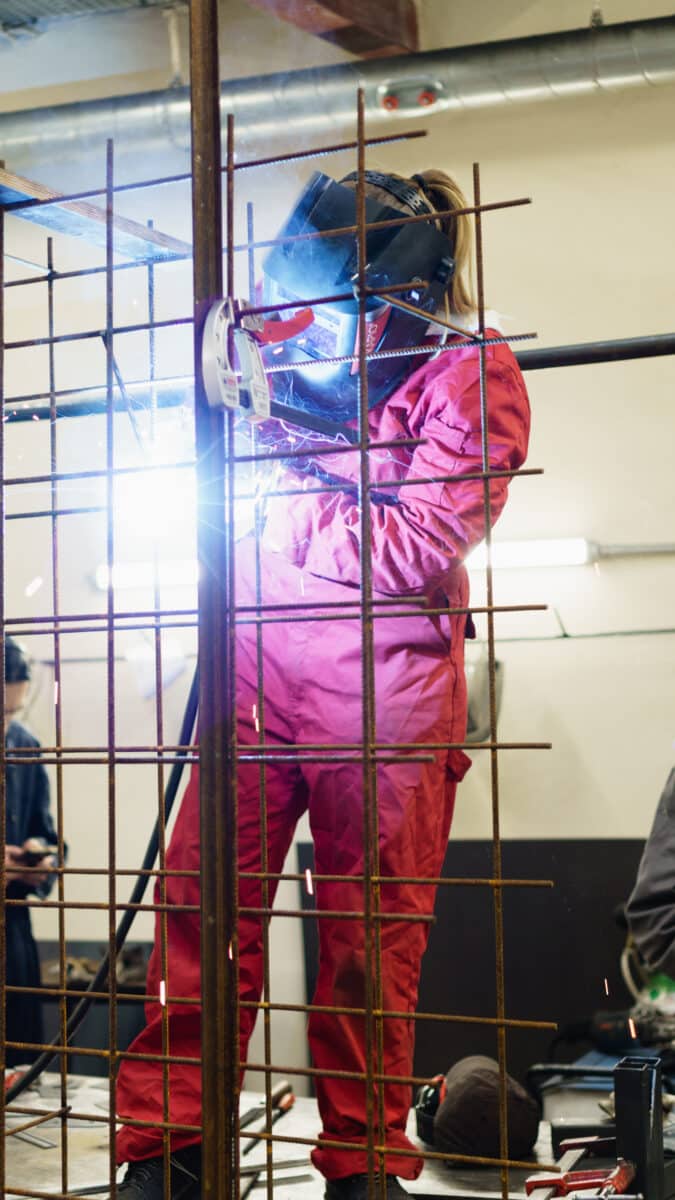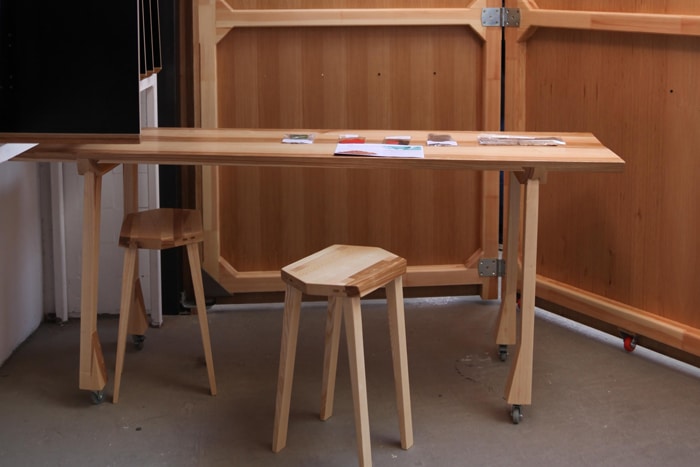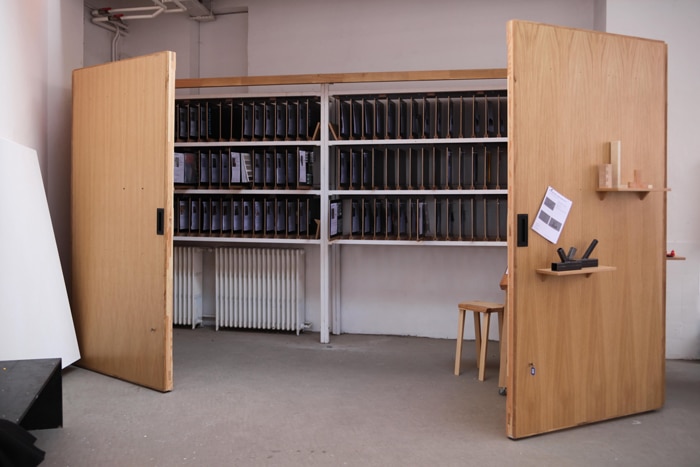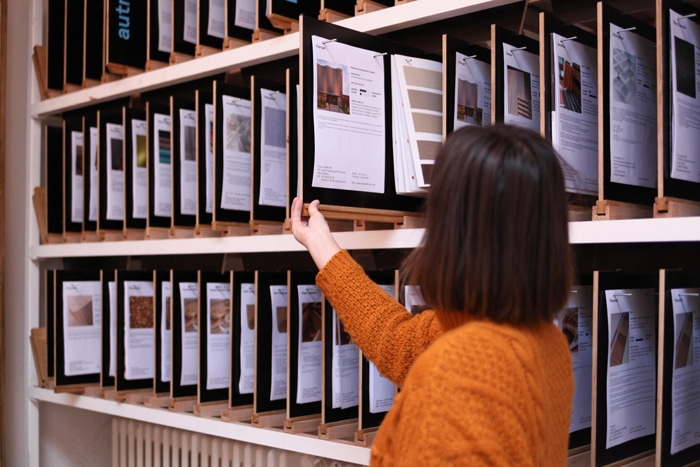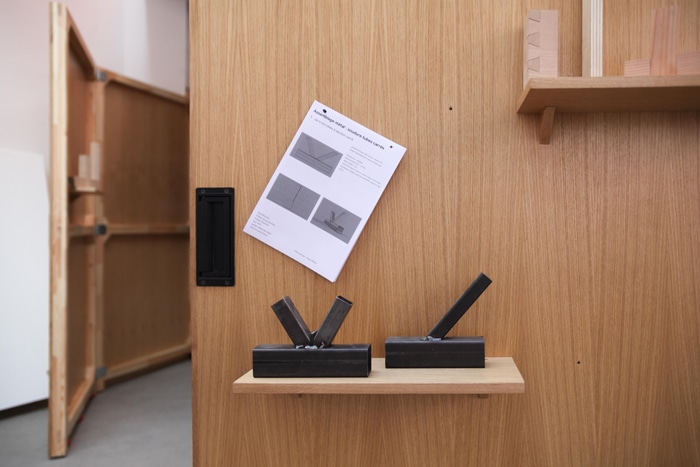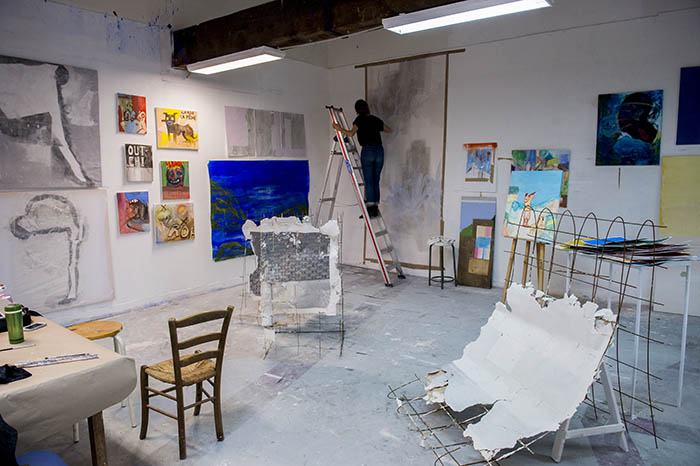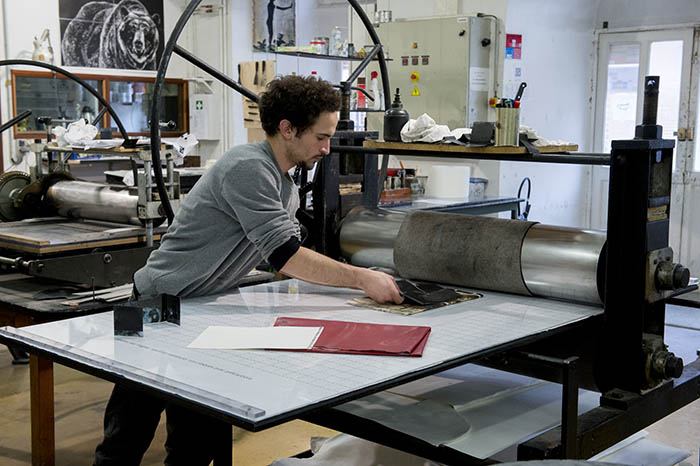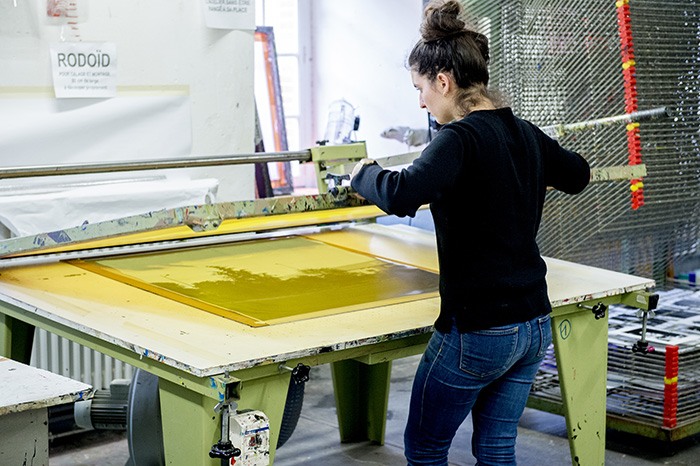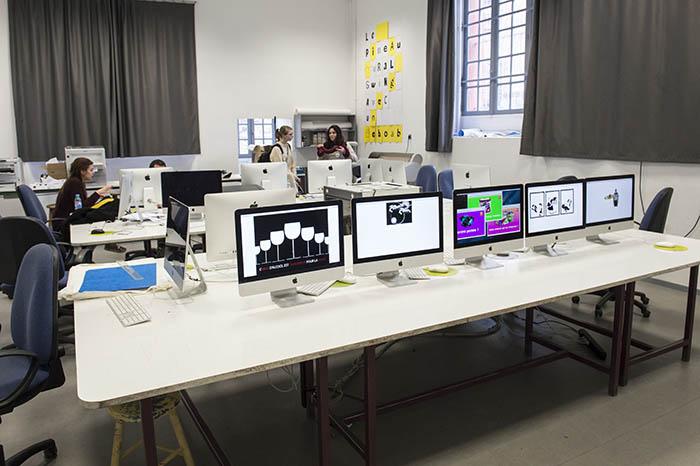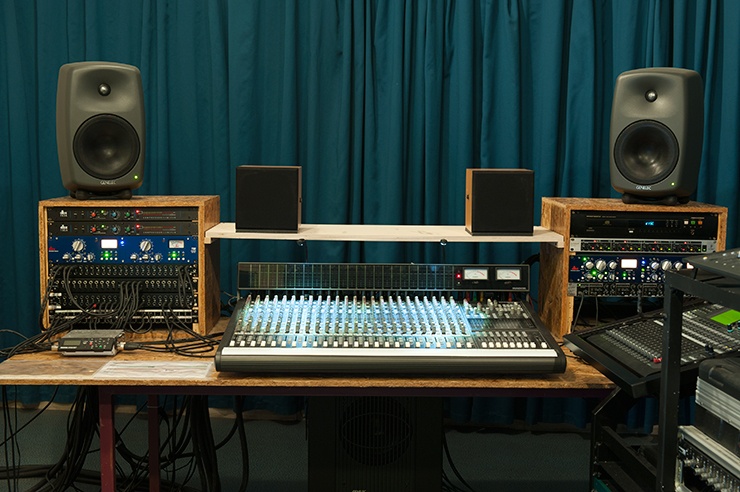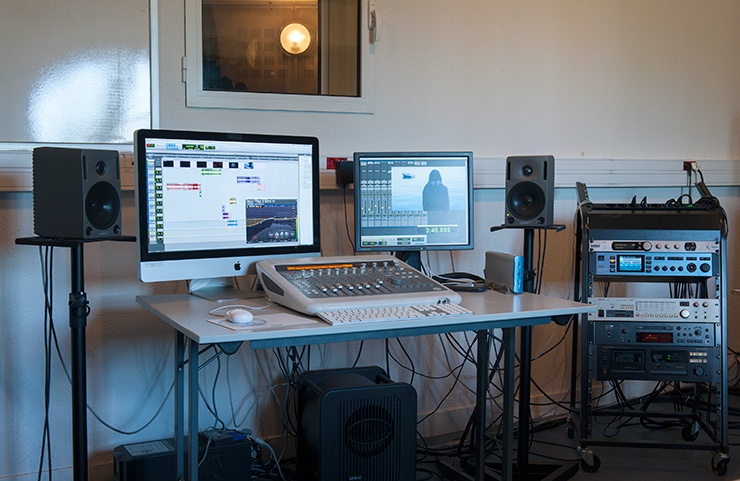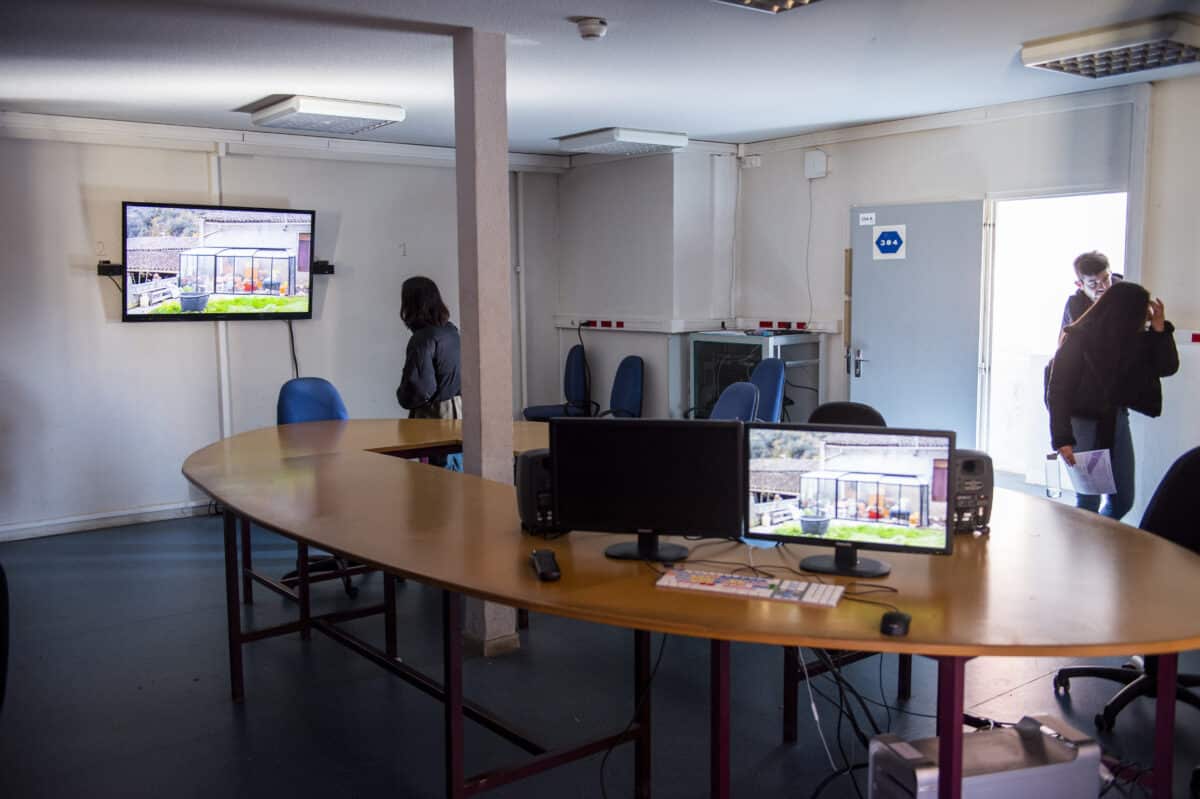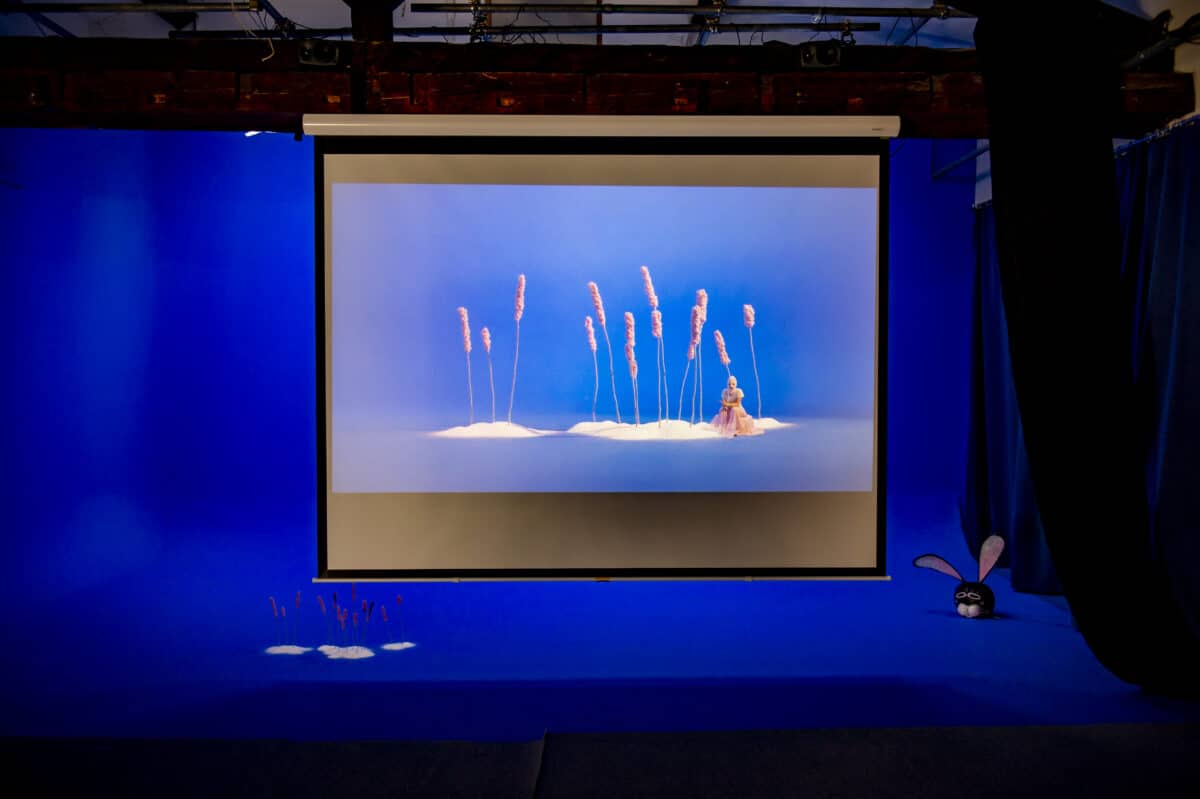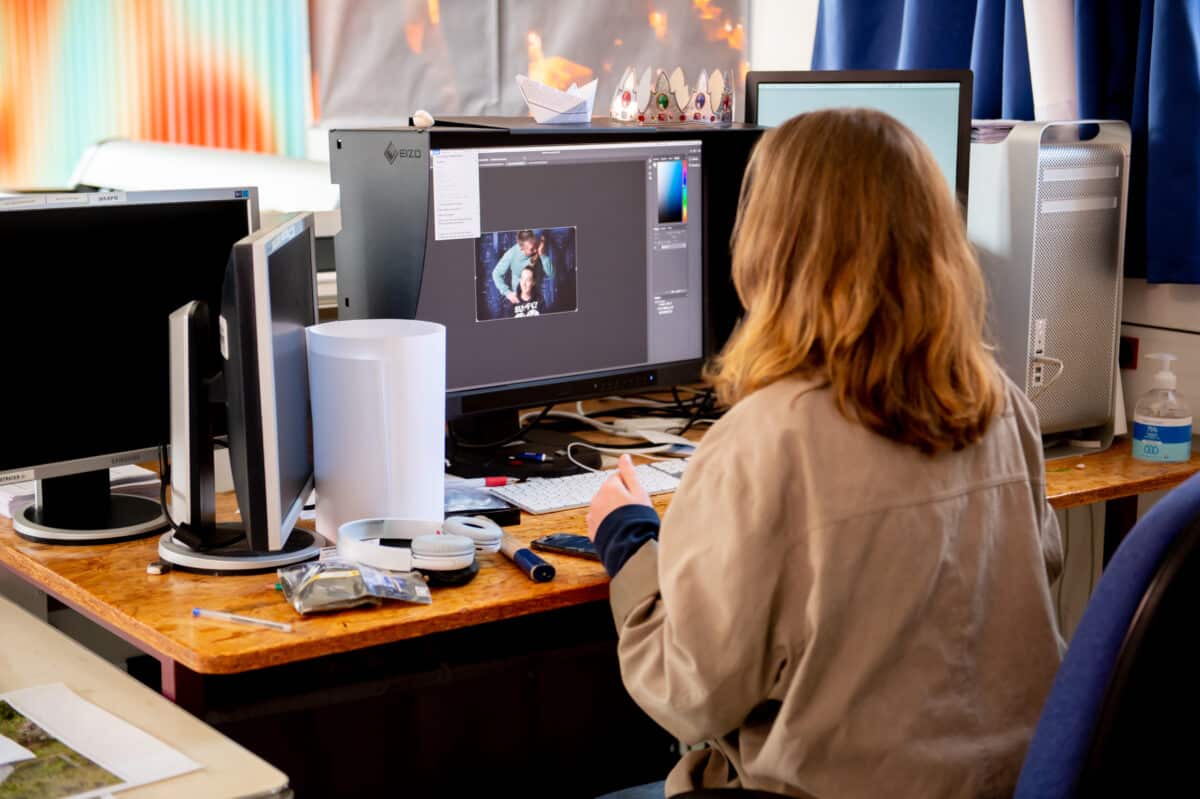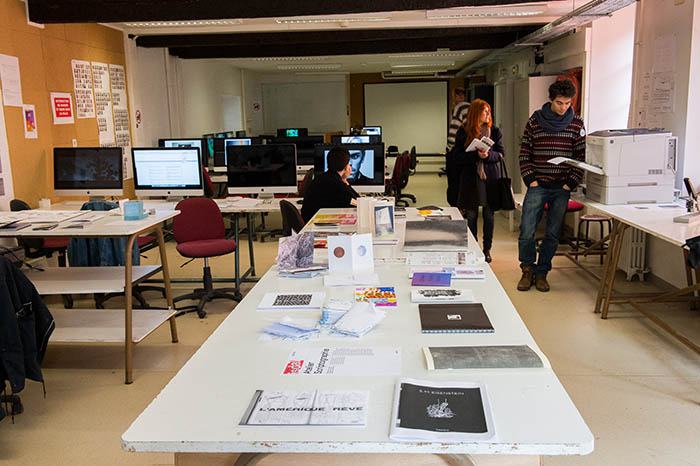Technical workshops
The technical workshop is a space where students can learn the more technical aspects of their medium. It is a space to experiment and reflect on issues raised by their medium. As a result, the space occupies a central position within the isdaT. It is not dedicated to a particular option, but is open to students from all years and options.
The available courses within the workshops have been selected in coordination with the projects and in consultation with the professors. The technical workshops are led by both professors and teaching assistants. Students employed by the isdaT work alongside the workshop leaders as instructors.
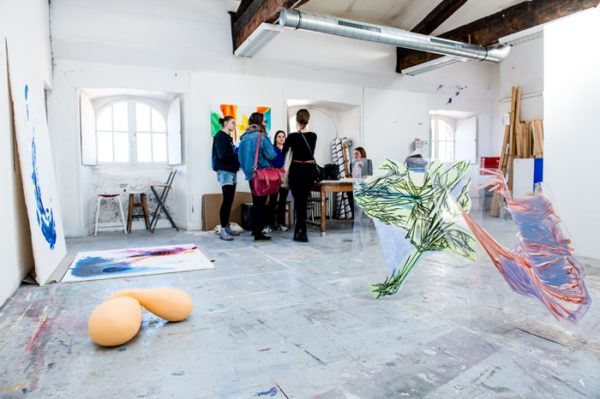
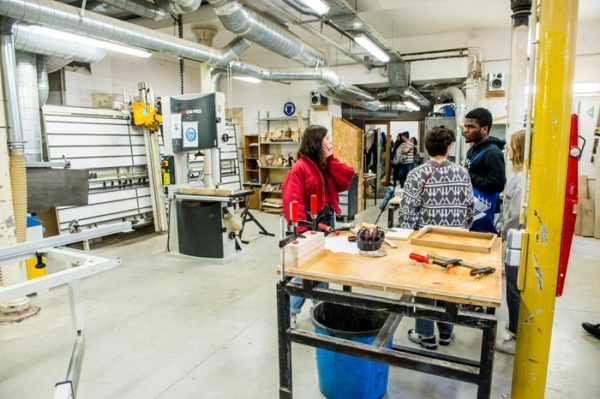
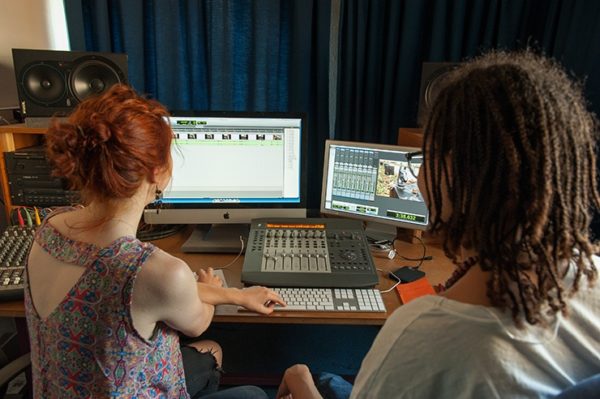
Volume workshops
The volume workshops are places where students are able to experiment, design and execute their projects. These workshops are a space where the presiding teachers are able to impart their own knowledge and resources to the students carrying out their projects. Although the workshops respond to professional demands, they do not cater for all technical fields (such as bronze or glass). To compensate for this, outsourcing may be offered in the form of travel to the qualified companies, organisation of mobile workshops within the isdaT itself, or through partnerships with other art centres and art schools.
There are five volume workshops at the isdaT:
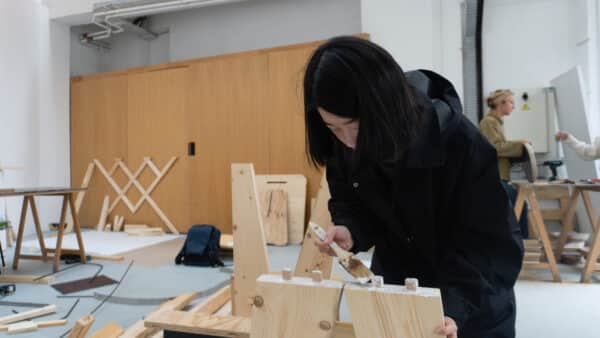
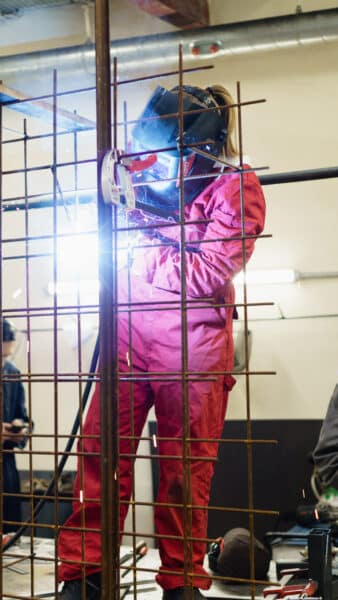
Materials library
The objective of the workshop is to introduce students to a research interest and methodology in order to use their acquired knowledge about materials in their own projects.
The materials library provides:
- An introduction to the families of mineral, metallic, organic and composite materials;
- The discovery of their origin, their implementation and their transformation process;
- To assist in the students’ choice: technique, ecology, use, sustainability, meaning;
- To ensure an appropriate correlation between materials and their use in projects
- To create a collection of samples, documentation and videos;
- To monitor the emergence of new materials (database http://www.materio.com);
- To serve as a reference collection in student presentations.
- To support courses on specific materials in the construction of spaces: wood, stone, ceramic, concrete, plaster.
Referent professor
Sandra Aubry
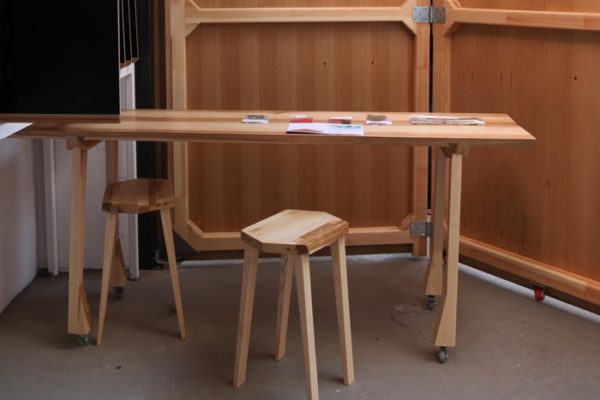
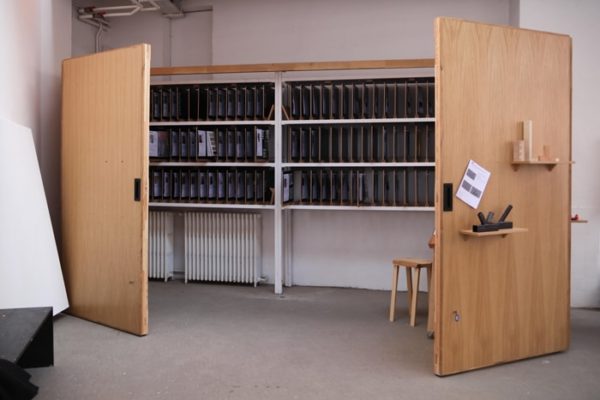
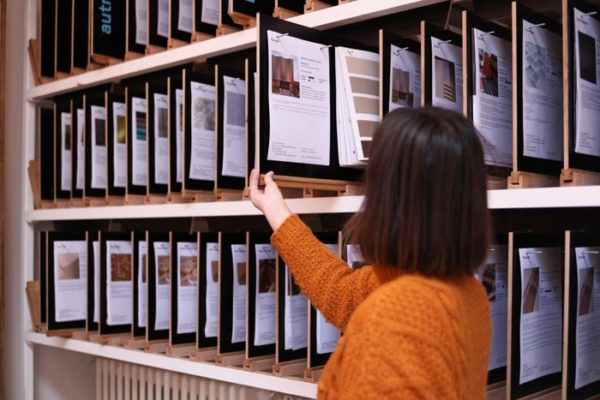
Painting workshop
The painting workshop is open to all students. It is a space where students are introduced to the different techniques of painting. The basic materials are provided: frame, paper, pigments, chalks, gesso, acrylic and oil binders.
The isdaT supports access to materials so that all students are able to benefit from the best learning conditions. It is a space where students can develop, experiment and try out different mediums in order to perfect their technique. It offers the student an understanding of classical and contemporary painting techniques.
Introductory workshops are led by teachers during the 1st cycle. The painting workshop is also a place for discussion and the supervision of student projects.
Referent professor
Simon Bergala
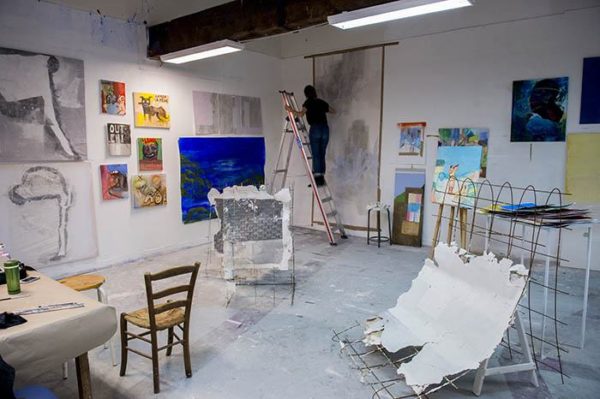
Publishing workshops
The publishing workshops combine the practices of engraving, screen printing and micro-publishing. They work in close collaboration and correlate with the art, design and graphic design options. Computer graphics and large-format digital printing are incorporated into the workshop, allowing students to expand their graphic abilities. The specific features of each medium and the mixing of techniques are considered. Relationships both with technique and with the means and modes of reproduction, as well as their formatting, are taken into account (publication, micro-edition, series, multiple). These workshops offer the possibility of working on the production of multiples, as well as the types of reproduction specific to engraving and screen printing from a contemporary perspective.
The workshops are spaces for experimentation, practice, reflection, development and production: processing and developing an image, a text, a space, a form. It should be noted that they cannot, therefore, be considered as integrated printing services. Their role is to facilitate educational projects (specific courses and course follow-up) and student-specific projects.
- Publishing and images: stamping, engraving, digital printing
- Screen printing
- Small print publishing.
Referent professors
David Coste, workshop co-coordinator professor, and Valérie Vernet, workshop co-coordinator teaching assistant
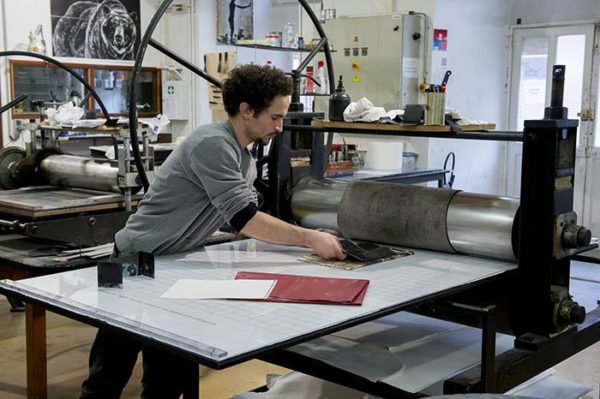
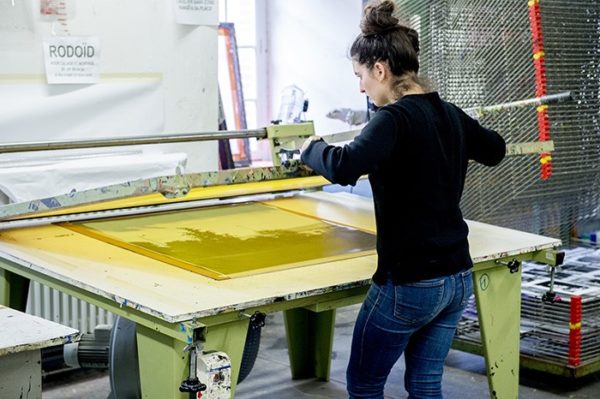
Photography workshops
Photography workshops bring together three complementary spaces:
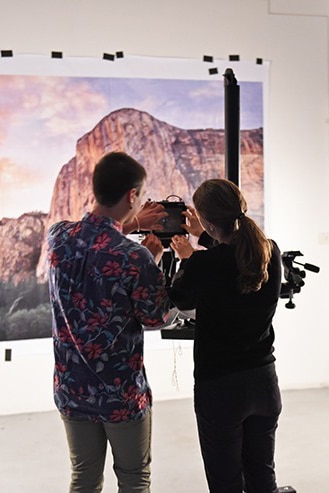
Digital workshops
Several workshops teach learning digital tools:
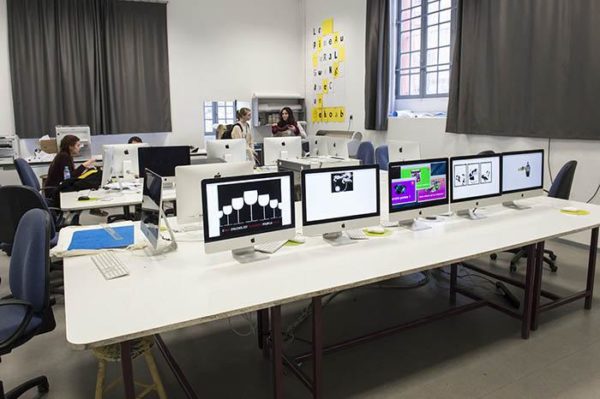
Sound workshop
The isdaT provides an introduction to listening, the use of recording techniques and sound processing as well as support for projects within the framework of research. Open to all students. Exploration of listening situations by implementing a sound recording protocol in the studio and outdoors. Establishment of a common vocabulary (description criteria) through perception. Exploration of the different attitudes of sound recording and broadcasting, of the production of sound material through writing, editing, mixing, processing and spatialisation.
Workshop leader
Aude Van Wyller, teaching assistant, in relation with Valérie du Chéné and Felip Martí-Jufresa, professors
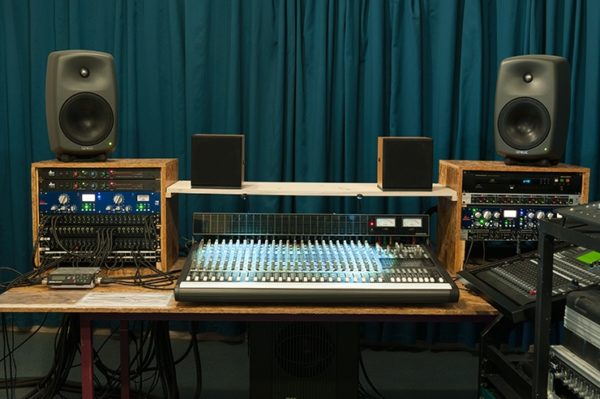
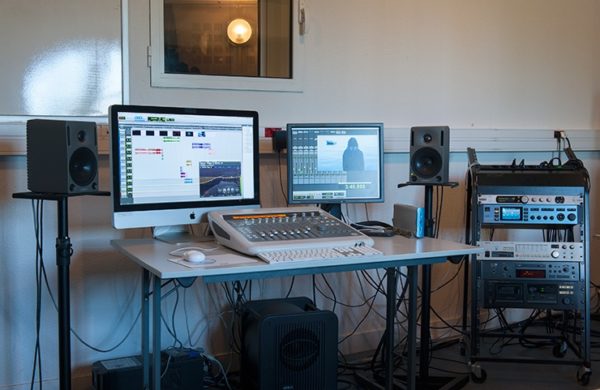
Video workshops
The video workshop is structured around three research fields:
Images both real and imaginary
The constitutive elements of a film production, namely image, sound and time are both the base and the goal of questioning the imaginary, that is to say the ability to imagine a world through thought. All sources – drawings, paintings, recordings, photographs, engravings, samples, models, music – are to be compiled, cut out, organised, structured, graded and equalised.
Images of reality
The documentary approach is a singular one: it opens up a whole variety of scenes and perspectives of reality, the very essence of the imaginary. It bridges the gap between all forms of artistic expression, experimentation and testing. They are part of the political, the human, the sensitive and aesthetic experience.
Projection(s)
The exhibition, the diffusion, the existence in its materialisation, in its relation to space and to the public, – such is what can be made possible through sensory experiences, exchanges and meetings. It questions displacement and the context behind the spectator’s position, it spatialises what is being presented, it makes the installations resonate on a physical and temporal scale, it forms the construct of video-projected films.
Referents
Olivier Dollinger, Thomas Sipp, professors
Jean-Pierre Bourorga, Lény Lecointre, teaching assistants
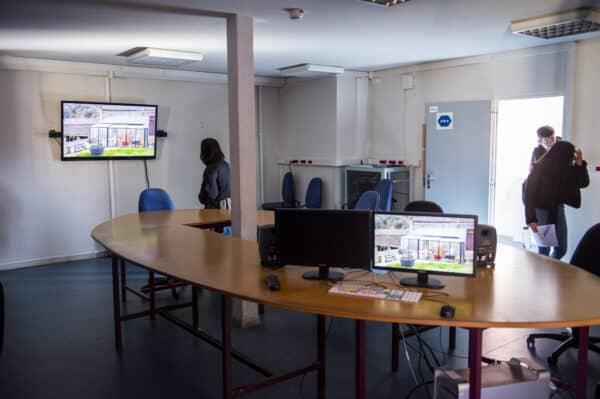
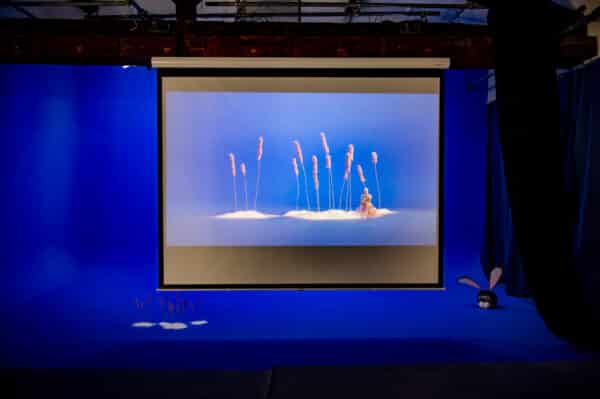
Web and programming languages workshops
The web workshop supports artistic projects related to the Internet or which use its potential (aesthetic, social, narrative, political). This unconventional approach involves an understanding of the constituents of this medium (pages, websites, flow, code, interactivity, etc.), as well as the use of other mediums, from images to objects, which address the issue of the implications of the Internet and technology.
Computer stations are equipped with software tools more specifically oriented for the creation of websites and interactive works (Dreamweaver, Flash, Photoshop, Illustrator), but also include free multimedia creation software for processing and mobile processing (applications for mobile phones ). Software installation is performed only by teachers, administrators and machine administrators, but can be requested by students.
Referent professors
Étienne Cliquet, Yeelena de Bels
